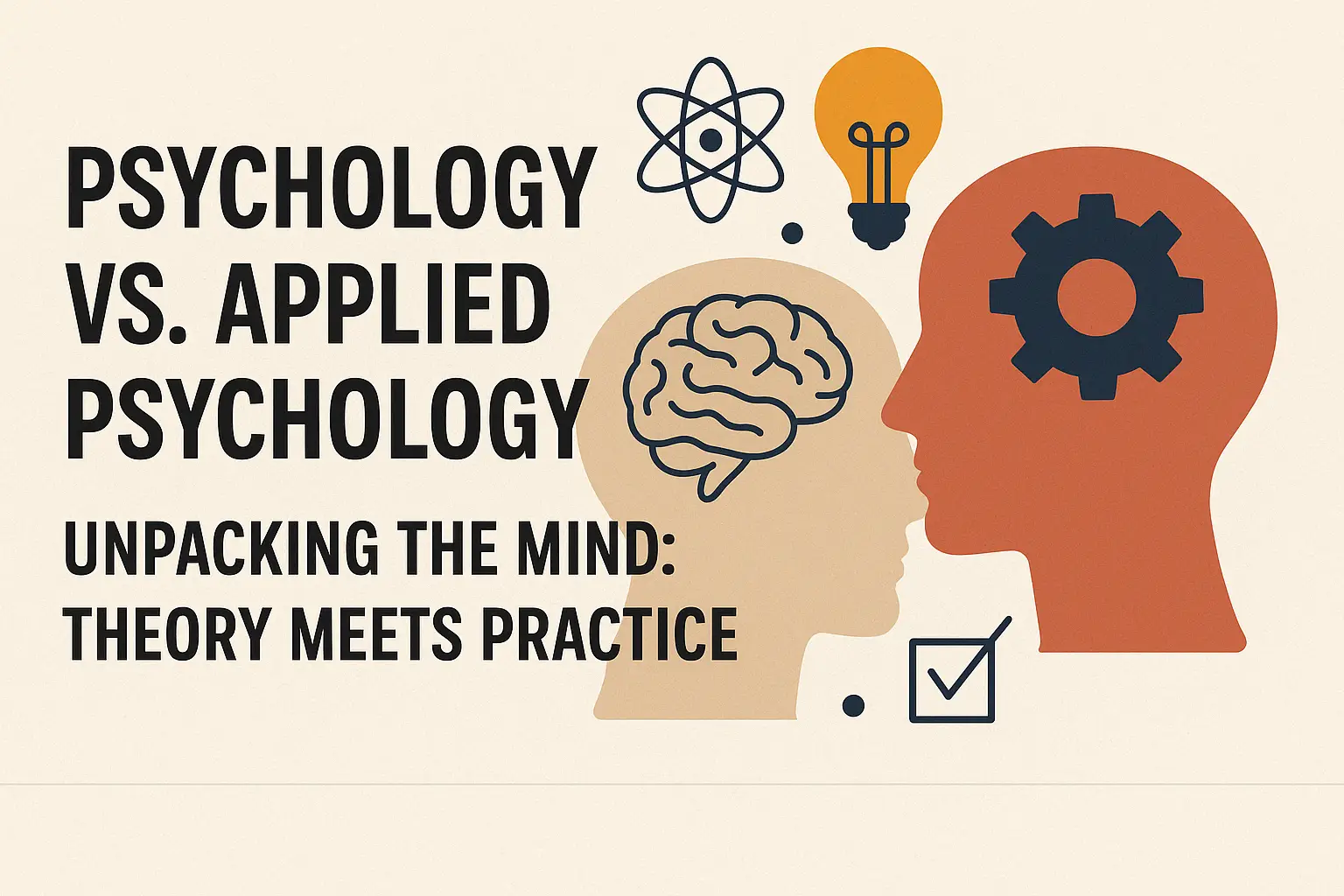Table of Contents
The science behind psychology focuses on the human mind and behaviour and intends to understand why people act the way they do. Until the dawn of the 20th century, there was little to no significance given to psychology despite being an established scientific and academic discipline. In the 21st century, counselling psychology courses in India and other developing countries are witnessing a steady rise, and the global awareness and impression around psychology is consistently shifting for the positive.
What is Meant by Counselling Psychology?
Counselling psychology is an academic programme equipping students with practical training and hands-on experience. It covers a wide range of subjects related to psychological theories and their real-world application. The students of counselling psychology courses in India are formally trained by experienced psychologists and professors, with a strong emphasis on clinical practice and supervised sessions.
Psychological counselling is a tricky endeavour where the healthcare provider is required to develop an understanding and mutual respect with the patient, allowing them space to open up without judgment. This is not achieved overnight, and multiple sessions are required for the trust to be built between the patient and the psychologist. Hence, practical training is encouraged in the course.
Difference Between Clinical & Counselling Psychology
Despite the growing awareness around mental health, there remains considerable confusion in the public understanding of clinical psychology and counselling psychology.
Counselling psychology in India is offered as a postgraduate programme designed to train students to become practising psychologists. Graduates are prepared to work in diverse settings such as universities, hospitals, private clinics, schools, wellness centres, and even corporate environments.
Upon completion of the programme and with the necessary licensure, graduates are eligible to work as either counsellors or clinical psychologists, depending on their training and area of focus. While these two branches often overlap in practice, there is a key distinction that sets them apart.
Clinical psychology primarily deals with psychopathology—the diagnosis and treatment of mental disorders. In contrast, counselling psychology focuses more on helping individuals manage emotional, social, and physical stress, offering guidance and therapeutic support for life’s challenges rather than severe mental illness.
Prominent Differences:
| Aspect | Clinical Psychology | Counselling Psychology |
| Focus Area | Diagnosing and treating mental illnesses | Helping with emotional, social, and life challenges |
| Work Environment | Hospitals, psychiatric units, clinics | Schools, wellness centres, private practice, NGOs |
| Type of Cases | Severe psychopathology (e.g. schizophrenia) | Life stressors (e.g. grief, relationship issues) |
| Training Emphasis | Assessment, diagnosis, treatment planning | Communication, guidance, therapeutic techniques |
| Licensing Requirement | Mandatory postgraduate degree + licensing | Mandatory postgraduate degree + licensing |
How to Become a Counselling Psychologist?
To become a counselling psychologist, one of the primary requirements is to obtain a basic degree in psychology and later gain a specialised postgraduate degree in counselling psychology. The counselling psychology courses in India are specially designed for individuals with a deep sense of helping others with stressors. Here are 4 steps to becoming a counselling psychologist.
- As clarified, a bachelor’s degree in psychology is the first and foremost thing required for students to formalise a foundation in psychology.
- Along with obtaining the bachelor’s degree, the student will also be required to gain practical experience by assisting professional psychologists or interning at healthcare facility.
- The bachelor’s programme in psychology is believed to provide a fundamental understanding of the discipline; however, to gain knowledge and skills in special areas like Counselling psychology, you will need a master’s degree in the subject.
- The license to practice counselling psychology is granted soon after obtaining a degree, but you can choose to further enrich your knowledge, skill, understanding, and potential to consult patients and help them resolve their issues and guide them in the right way.
The degrees are required for any psychologist to join healthcare units or legally start their practice. The institutes and colleges offering these counselling psychology courses in India have an obligation to prepare each student to be a professional psychologist and hold counselling sessions for those in need of emotional guidance or stress management.

Counselling Psychology Courses in India: Colleges, Fees & Scope
Psychology as a profession has steadily gained recognition, and in the 21st century, the interest in pursuing psychology is at an all-time high. As a result, numerous educational institutions and universities now offer psychology programmes, each varying in academic approach, curriculum design, and fee structure depending on several factors
For aspiring students, choosing the right institution is crucial.
The top counselling psychology programmes in India share a few key features: a holistic and interdisciplinary curriculum, dedicated space for research, interactive learning through live discussions and debates, and rigorous training under experienced faculty and guest professionals. These elements together create a strong foundation for students to evolve into competent, empathetic professionals.
Training & Skills in Counselling Psychology
The counselling psychology courses in India are attuned to prepare students to efficiently handle their job role as a psychologist or counsellor. Let’s explore the key responsibilities and roles of a counselling psychologist.
- Attentive listening is one of the most essential and non-negotiable skills for any psychologist. Patients seek a safe space to share their experiences and expect to be heard with care and understanding.
- In addition to being good listeners, psychologists must demonstrate genuine empathy to build trust and foster a strong therapeutic relationship.
- They should also be well-trained in applying a range of psychological techniques to assess a patient’s mental health and gradually address their concerns through consistent counselling sessions.
- Since psychological counselling primarily focuses on restoring emotional and mental balance, patients are often guided through therapeutic exercises and daily routines that are proven to enhance well-being and improve overall quality of life.
Career Opportunities for Counselling Psychologists in India
| Sector/Field | Role Description | Common Employers/Platforms |
| Educational Institutions | Provide counselling to students on academic, personal, and career matters | Schools, colleges, universities |
| Hospitals & Clinics | Work with healthcare teams to support patients with mental or emotional issues | Government/private hospitals, multi-speciality clinics |
| Private Practice | Offer therapy to individuals, couples, or families in a self-owned clinic | Independent practice or partnerships |
| Corporate Sector | Support employee mental health, stress management, and work-life balance | MNCs, HR departments, and employee wellness firms |
| NGOs & Social Work | Assist vulnerable or marginalised communities through counselling | Non-profits, crisis centres, rehab organisations |
| Online Counselling Platforms | Provide therapy through telehealth or digital mental health apps | BetterHelp, YourDOST, MindPeers, etc. |
| Research & Academia | Teach, guide research, and develop psychological studies | Colleges, research institutes, and universities |
Conclusion
Among the various branches of psychology, counselling psychology focuses primarily on addressing social, emotional, developmental, and other mental health concerns. Rather than diagnosing mental disorders, counselling psychologists work to understand and alleviate the mental distress individuals experience in response to a wide range of life circumstances — including cultural expectations, religious beliefs, social stigma, interpersonal challenges, and more.





